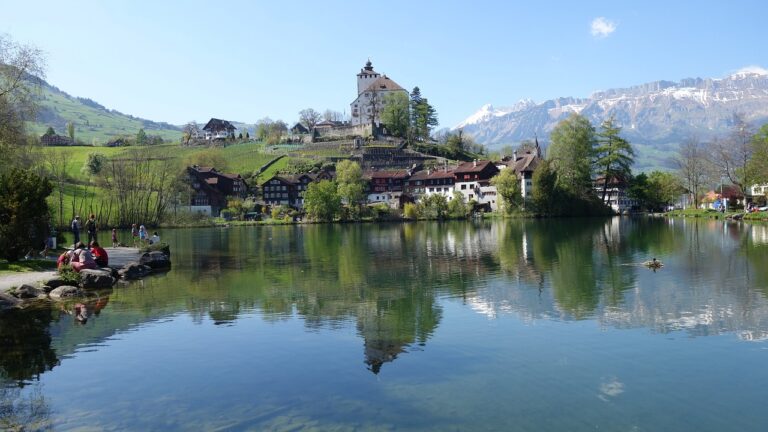Exploring the Potential of Virtual Reality Field Trips
Virtual reality field trips offer an immersive and engaging educational experience for students of all ages. By utilizing VR technology, learners can explore far-off places, historical sites, and inaccessible environments without leaving the classroom. This hands-on approach to learning enhances retention and understanding as students are actively involved in the experience.
Additionally, virtual reality field trips cater to different learning styles, providing a multi-sensory experience that appeals to visual, auditory, and kinesthetic learners. The interactive nature of VR allows students to manipulate objects, view simulations, and engage with the content in a way that traditional textbooks or videos cannot replicate. This personalized learning experience can help students develop critical thinking skills and foster a deeper appreciation for the subject matter being studied.
Different Fields That Can Benefit from Virtual Reality Field Trips
In the field of history, virtual reality field trips offer students the opportunity to immerse themselves in significant historical events and locations. By exploring historical sites in a virtual setting, learners can gain a deeper understanding of the past, bringing history to life in a way that traditional textbooks cannot match. This hands-on approach can help students develop a more profound connection with historical events, making learning engaging and memorable.
In the realm of science, virtual reality field trips can transport students to places that are otherwise inaccessible. Whether it’s exploring the depths of the ocean, journeying through space, or examining the human body at a cellular level, virtual reality technology opens up a world of possibilities for scientific exploration. These immersive experiences not only enhance students’ understanding of complex scientific concepts but also spark their curiosity and enthusiasm for the wonders of the natural world.
• In history, virtual reality field trips allow students to immerse themselves in historical events and locations
• Virtual exploration can provide a deeper understanding of the past compared to traditional textbooks
• Hands-on approach helps students develop a stronger connection with historical events
• In science, virtual reality field trips offer access to inaccessible places such as the depths of the ocean or space
• Technology allows for exploration at a cellular level, enhancing understanding of complex scientific concepts
• Immersive experiences spark curiosity and enthusiasm for the natural world
How Virtual Reality Field Trips Enhance Learning Experiences
Exploring new worlds and environments can significantly impact the way students learn and retain information. Virtual reality field trips offer a unique opportunity to engage students in immersive experiences, allowing them to interact with content in a more meaningful and memorable way. By simulating real-life scenarios, virtual reality field trips provide a hands-on approach to learning that can enhance comprehension and critical thinking skills.
Additionally, virtual reality field trips can cater to diverse learning styles and preferences, making education more accessible and engaging for all students. Visual and kinesthetic learners, in particular, benefit from the interactive nature of virtual reality experiences as they are able to participate actively in the learning process. This dynamic form of education fosters curiosity and creativity, encouraging students to explore subjects with a sense of wonder and excitement.
What are some benefits of virtual reality field trips?
Virtual reality field trips can provide immersive learning experiences, allowing students to explore locations and concepts that may otherwise be inaccessible. They can also help students engage more deeply with the material and retain information better.
How can different fields benefit from virtual reality field trips?
Virtual reality field trips can benefit a wide range of fields, including history, science, art, and geography. They can provide interactive and engaging experiences that make learning more enjoyable and effective.
How do virtual reality field trips enhance learning experiences?
Virtual reality field trips can enhance learning experiences by allowing students to experience things firsthand, rather than just reading about them in a textbook. This can help improve comprehension, retention, and overall engagement with the material.







